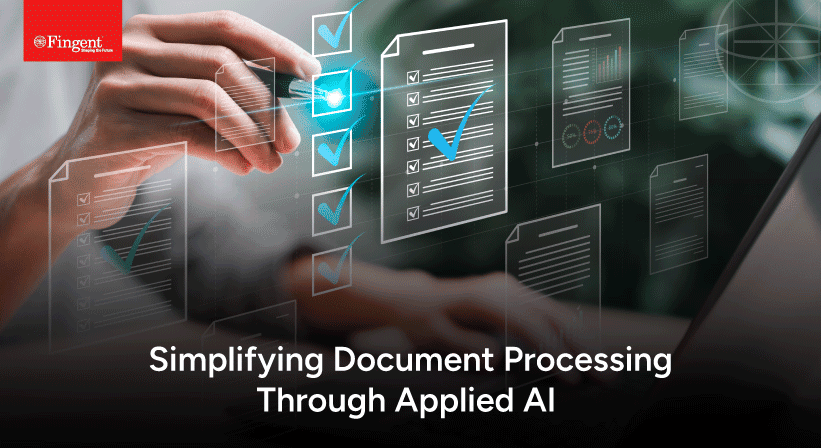How Artificial Intelligence Is Enhancing Mobile App Technology
Warning: in_array() expects parameter 2 to be array, null given in /home/www/fingenttest/public/wp-content/themes/fingent/template-parts/content.php on line 37
Warning: in_array() expects parameter 2 to be array, null given in /home/www/fingenttest/public/wp-content/themes/fingent/template-parts/content.php on line 81
Five Ways AI Is Accelerating Mobile App Technology
Artificial Intelligence (AI) has permeated the tech world. It is enhancing everything from your car to your toothbrush. It is influencing the decisions that affect your life. Artificial Intelligence is the term used to define a machine’s ability to simulate human intelligence. Actions which were once considered unique to humans are now being stimulated by technology and used in every industry. This includes mobile app technology.
Mobile phones have been using AI for some time now. The earlier generation of phones was cloud-based and Internet-dependent. The difference today is that the latest smartphones integrate cloud-based AI along with built-in AI. The rate at which AI is expanding is accelerating.
Let us now discuss how AI is enhancing mobile app technology.
Related Reading: Take a look at the top AI trends of 2019.
AI is the Catalyst in Mobile Apps
As per a study by McKinsey Global Institute, AI expansion brought in an investment of $39 billion back in 2016 which was three times the amount invested in AI three years prior to that. Acting as a catalyst, AI is continuing to enhance mobile apps. It empowers the evolution of mobile apps by making them intelligent pieces of software that can predict user behavior and make decisions. AI allows mobile apps to learn from data generated by the user.
Mobile developers are adapting quickly to changing innovations. There are over 5 million apps in the leading app stores, which stands to show how AI is creating personalized app experiences for users and is adapting to various situations due to automated learning capabilities. Here are five specific real-life benefits of AI on mobile apps.
1. The Wrapping of Artificial Intelligence with the Internet of Things (IoT)
The combination of AI and IoT is powerful in creating a personalized experience for users. A large amount of varied data is collected from the customer in real-time as he uses the device. Each usage has commands or interactions that are being used with mobile apps. AI can then leverage this real-time data to deliver an enhanced personalized experience.
IoT reduces app development time significantly. In mobile app development, IoT along with Artificial Intelligence can lead to better utilization of resources and higher efficiency. Together they free up a good part of employee bandwidth. It delivers modified and more efficient apps and strengthens data security measures, which is vital because the future of mobile apps will always be revolving around connected devices.
2. Enhances Search Engines
Text and voice have been the traditional search modes. But say, you saw something you would love to buy, but you don’t know what it is called or how to find it. Visual search helps you find what you want even when you don’t know the words to describe it. The smartphone is the best launchpad for visual search technology. An example of this is Google Lens.
In some cases, visual search is more accurate and faster than a voice or a text search. Due to integrated AI in mobile applications, android developers are bound to develop an image recognition system and a voice recognition system. To increase conversion rates AI will provide localization of applications.
Related Reading: Learn more on how to build an intelligent app ecosystem with AI.
3. Empowers Real-Time Translation
There are so many translation apps which enable translation. However, most of these apps do not work without the internet. AI could enable your smartphone to translate different languages in real-time without the need for an internet connection.
Much like a digital version of what interpreters do, Artificial Intelligence can provide a simultaneous translation tool which allows sentences to be translated almost instantly without a time lag. AI allows the translation tool to be adjusted for latency. This would mean that a user can set the lag between a spoken word and its translation. This would be especially useful for certain languages which would require a longer time lag for better translation. Example: Baidu.
4. Improved Security with Face Unlock
Face Unlock was launched in September 2017 by Apple. Combined with Apple’s elaborate hardware, Apple iPhone X uses an AI-based algorithm for its face unlocking system. Using AI processing, the phone can easily identify the user’s face even with facial changes like specs or beard.
Recently, Google announced radar-based, hands-free gestures to face unlock. With its hands-free system, unlocking the phone would be easier, faster and secure. It claims that it can unlock the phone almost in any orientation.
5. Enhanced Mobile App Authentication
As AI is becoming easily available as a commercial technology, both criminals and organizations are taking full advantage of it. There are predictions by cyber-security experts that the world might witness many AI-powered cyber-attacks in the future. This necessitates the development of more sophisticated cyber defense systems. Also, with the increasing use of smartphones, we all need an advanced level of data security. Security has been one of the biggest concerns for Android developers.
Thanks to enhanced artificial intelligence with machine learning and deep learning algorithms we can look forward to a time when authentication becomes a smooth experience, which allows users to enjoy security without trading convenience. AI can be enabled to give alerts to users about possible threats. AI can also add a level of augmentation to biometric authentication which makes it almost hack-proof. Another benefit of AI algorithms is that they can find and alert potentially compromised accounts in real-time.
AI With You Now and Into the Future
AI presents numerous possibilities for innovation in the mobile app industry. AI is the future of mobile app development. Artificial Intelligence is changing how users interact with app services and products. Mobile app users will be linked to an ecosystem of intelligent applications and will work together to deliver a personalized user experience.
Businesses developing AI-enhanced mobile apps will benefit from the predictive analysis these apps can create. According to a study conducted by Callsign, the user preference for authentication is shifting. Such changing preferences would mandate further enhancements in the development of mobile apps.
An intelligent ecosystem will gather a large pool of social data and behavioral interest, which can be used to further increase revenue and improve user experience. It is not an exaggeration to say that the smartphone industry is being revolutionized by AI. This makes it important to enable AI in your business and mobile applications. Give us a call to discuss how this can be done.
Stay up to date on what's new

Recommended Posts

08 May 2024 Financial Services B2B
AI Shaping the Future of Financial Services: Use Cases & Applications
As Dan Schulman, the CEO of PayPal once said, “We're not trying to reinvent the wheel; we're trying to perfect it.” Achieving perfection is no easy process. It is not……

24 Apr 2024 B2B
A Leader’s Blueprint for AI Success
"Leaders, embrace AI! Make it your superpower!" - Robert Barber, Leadership Development Trainer and Executive Coach. How Are Businesses Using AI? The verdict is crystal clear—leaders today must embrace AI to……

18 Apr 2024 B2B
Applied AI For Document Processing
"It's becoming increasingly clear that AI is the future, and almost everything else is a sideshow." - World-renowned computer scientist Geoff Hinton AI has taken over almost every aspect of……

21 Feb 2024 B2B
Stepping The AI Revolution with Applied AI
“I am telling you, the world’s first ‘trillionaires’ are going to come from somebody who masters AI and all its derivatives and applies it in ways we never thought of.”……
Featured Blogs
Stay up to date on
what's new















 US
US Insurance
Insurance









































